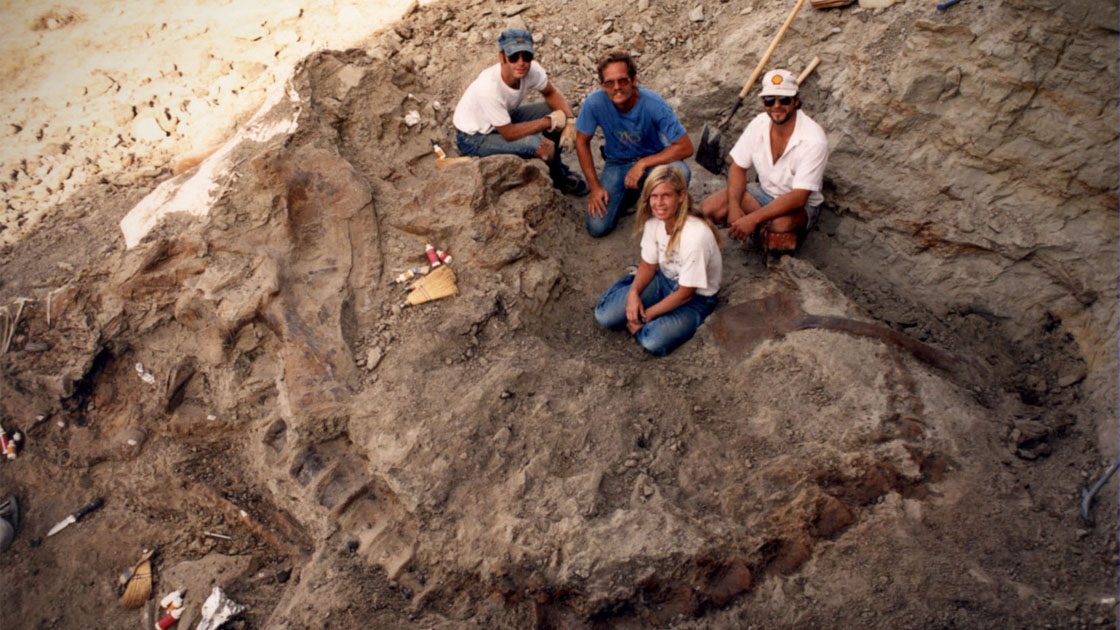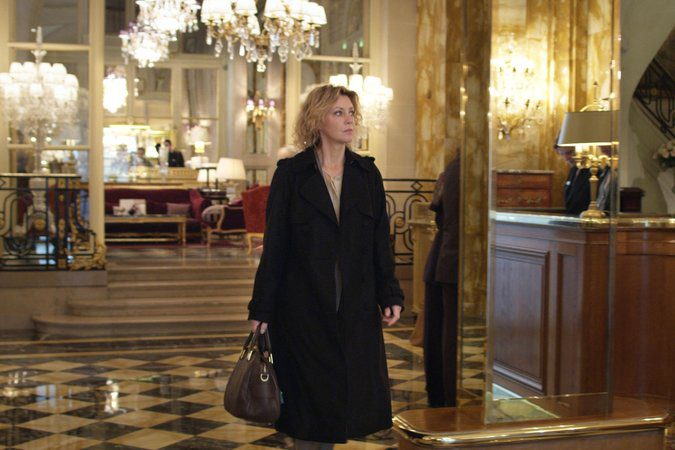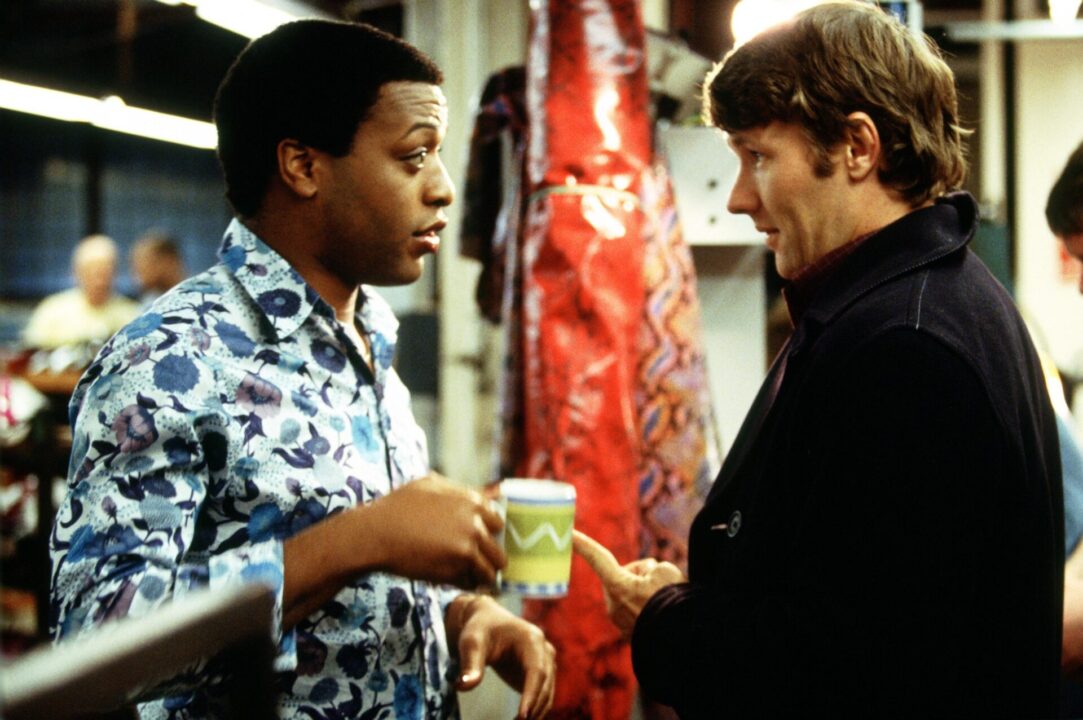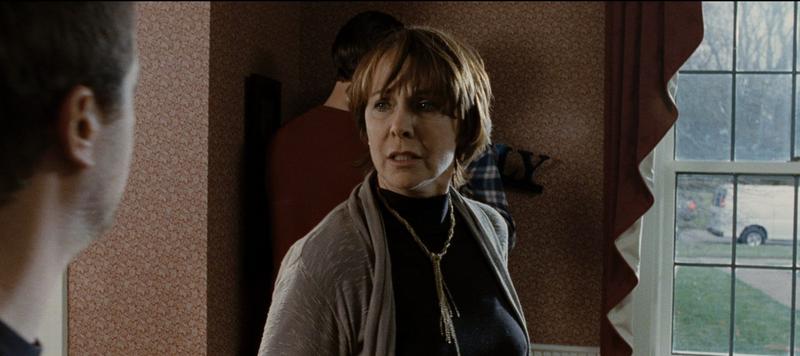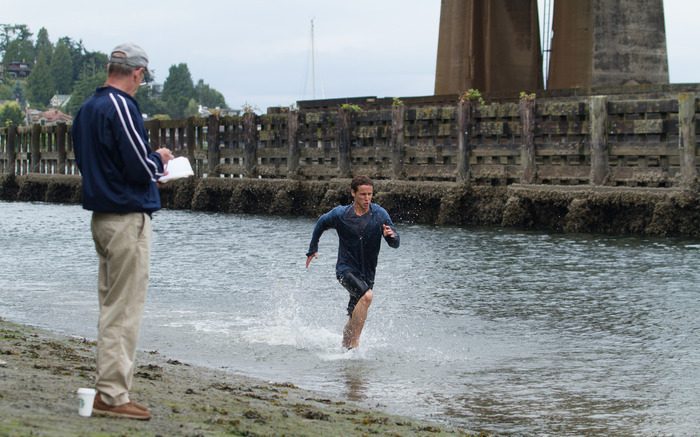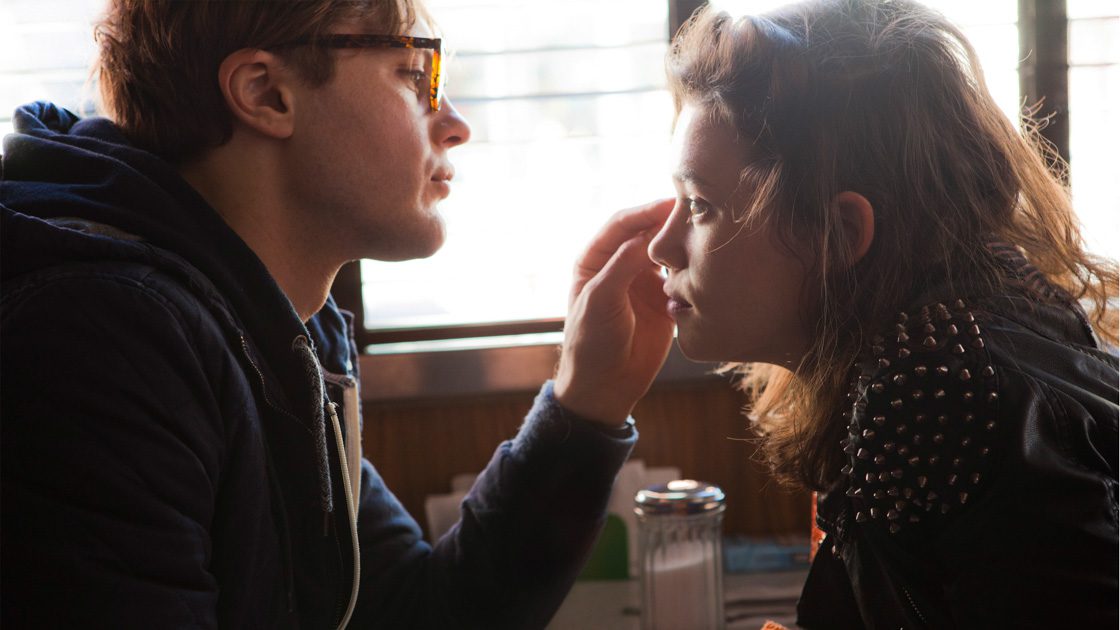Review: 'The Notebook' ('Le Grand Cahier')
In 1944 Hungary, in the midst of World War II, two identical, inseparable twin boys are sent by their mother to the far countryside to avoid the dangers of war. They are sent to their grandmother (Piroska Molnár), a tough, vicious old woman who is known as the town witch. She is outraged that she is stuck with the boys, referring to them only as “bastards” and beating them daily. Despite their mother’s intention of protecting them, the boys are inevitably exposed to the horrors of war, and the twins decide to make themselves immune to suffering by taking drastic actions, including beating each other up and starving themselves, all in the name of becoming emotionally tough in the drama The Notebook ('Le Grand Cahier').
The film is an exploitation movie disguised under the veil of foreign World War II drama.
The synopsis of The Notebook is essentially a set-up to create as many disturbing situations as humanly possible in a two-hour film. Nearly any scenario possible to make an audience horrified is included: pedophilia, murder, starvation, anti-Semitism, rape, abuse of power, bombings, you get the idea. And what is all this trying to prove? Essentially nothing, other than it is awful to watch, which we could have easily guessed without enduring ourselves to this. There is no story, no tension, just a series of set-ups for sadistic circumstances. I understand that war is a horrific thing and has a massive ripple effect. Violence in movies is usually meant to serve a purpose in moving the story forward, or possibly commenting on a larger theme. Here we get neither, and by the halfway point, the film becomes absurd trash, as numerous side characters meet gruesome scenarios with no real purpose.
There is no saving grace to this film. The story is an absolute mess, the characters are unsympathetic. The film is an exploitation movie disguised under the veil of foreign World War II drama. As much as I am an advocate for foreign films, and despite my personal affinity for the country of Hungary, I must advise strongly that you spare yourself the misery of this nightmarish film.
https://www.youtube.com/watch?v=RIDVFkghoEs
Review: 'Dinosaur 13'
We live in a beautiful era for documentaries that push narratives and transcend what audiences previously believed they once could do. Sundance debut Dinosaur 13, director Todd Douglas Miller’s first feature, will now join those ranks. Like many great films, the less you know going in, the more gripping this story will be. In 1990, Peter Larson and a team of paleontologists in South Dakota unraveled what would be the greatest discovery of their lifetime: Sue, the most intact Tyrannosaurus Rex fossil ever to be uncovered. The title Dinosaur 13 comes from the fact that this was the thirteenth T-Rex fossil to be uncovered, and as most people know, 13 is not a lucky number. In the midst of the painstaking restoration process involved with archeology, shortly after the discovery a massive legal battle involving the federal government ensued over the rights to the dinosaur bones and turned the project into a lengthy nightmare of who would get to keep the coveted Sue.
Exposing us to a narrative that few people know, Dinosaur 13 is a roller coaster of a story in the best way possible. What starts as a humble yet passionate following of a group of paleontologists becomes a conflict that is bigger than they could ever expect. There is no need to give any part of the film away because there are so many twists and turns in this story. It is documentaries like this that make me question why even bother with writing stories when there are great ones like this that are more compelling than fiction.
Paleontology is essentially the study of history and uncovering the truth in the past: Dinosaur 13 has done the same for this powerful story that should be heard by all.
There are a few points in particular that make Dinosaur 13 the type of film you can resonate with. First, this is a film about small town USA, in this case, Hill City, SD (in close proximity to the Badlands), and the power of community in places like this, both in good times and bad. Secondly, this is a film about passionate people. The subjects of the film, notably Peter Larson, the paleontologist who is the primary focus, but also the many other folks involved, all share a beautiful love of what they do. Despite all adversity, carrying passion and optimism is a beautiful thing to watch. Anyone who is passionate about their subject matter will find themselves connecting with the dedicated work of paleontologist Peter Larson, regardless of the field of interest.
From a craft standpoint, the film greatly benefits from a high quantity of archival footage. The story begins in the late 1980’s and early 1990’s. Had these events transpired 20 years before, home videos would not have been commonplace and it would have to rely more on reenactments and interviews, but instead, a good amount of the film actually uses footage, along with some reenactments and some fantastic interviews. Like any documentary that has heavy portions that take place in a courtroom, the only part that isn’t well documented is the courtroom scenes, but the film still does quite well working around them. This is made up for in the fantastic interviews of the subjects, all of whom tell their stories in a way that leaps off the screen. Fortunately, the film’s climax is rich with archival footage, allowing the film to build to its ending incredibly well. In case it isn’t already clear, this is one of the best films that I have reviewed all summer, and to anyone I would definitely recommend taking the time to watch it. Paleontology is essentially the study of history and uncovering the truth in the past: Dinosaur 13 has done the same for this powerful story that should be heard by all.
The film is now playing in select theaters and available to rent on iTunes.
https://www.youtube.com/watch?v=XZywsT8Sy-c
Review: 'Frank'
In its opening sequence of director Lenny Abrahamson’s Frank, the protagonist Jon (Domhnall Gleeson) does something I have never before seen in a film: using voice over narration, we hear this struggling musician attempting to compose music, through absurd and funny lyrics about his surroundings. He’s desperate to write the next big hit but has no immediate ideas, something anyone can relate to and laugh about.
This is the only exceptionally innovative moment in the film. Jon’s interest in music leads him to take desperate measures, and he finds himself joining a bizarre music band led by the titular Frank (Michael Fassbender), who is always wearing a giant mask. The group is interested in making music but have little idea how to do so. About the only thing the group has in common is that they all see Frank as some kind of idol. This has all kinds of consequences, as Frank blurs the line between being the most reasonable one in the group and also being the closest to insanity.
From the premise and the opening scene, it would indicate that this would be a comedic picture, and in my mind, this is where the film has its most success. Especially in the opening, but later on as well, the film delivers some great bits of humor. However, the film also manages to tackle some darker material and ends up being more focused on some really heavy material. When characters delve into stints at mental hospitals and it becomes clear that the people here are not in sane states of mind, the film has something to say about it in a non-joking manner. It’s good that they do not make light of these syndromes, but the juxtaposition of these darker elements interacted with the humor makes it increasingly difficult to laugh at when it goes back to humor. Even for a black comedy, this movie tackles some very serious topics that aren’t truly suited for jokes.
Perhaps the most important thing to know going into the movie is to not expect good music or a soundtrack that you’ll ever want to revisit.
The film could be saved with a great soundtrack, but alas, the music is bizarre and unmemorable. In reality, part of the message of the movie is that the music is not actually worth sharing because this group of people do not have the level of talent (or sanity) that they think they have. Perhaps the most important thing to know going into the movie is to not expect good music or a soundtrack that you’ll ever want to revisit.
Most of the film actually takes place on a farm with just a handful of characters. Some of the side characters get moments to shine, notably Clara (Maggie Gyllenhaal) and Don (Scoot McNairy), but like their characters, they all seem to be revolving around Fassbender (who supposedly never took the head off for the duration of filming). For all parties involved, I don’t see this as being the type of film that has too much impact on their career. It is an entertaining film at times, and the cast is an impressive mix, but for the most part, it does not leave the audience with much to walk away with. However, for what it's worth, the closing credits are superb.
https://www.youtube.com/watch?v=-catC4tBVyY
Review: 'A Five Star Life'
Irene (Margherita Buy) is in her 40’s, single, and has a job that sounds like a luxury: reviewing 5-star hotels in gorgeous locations. But mind you, her job isn’t just basking in all the amenities that a hotel provides, her job requires a meticulous attention to every possible detail, and all kinds of factors, from the amount of dust on the lamps to the timeliness of the staff, is thoroughly considered. Since her job requires her to be away from home so much, she is single and has estranged relationships with her family and friends. If the premise reminds you of Jason Reitman’s Up in the Air, you’re on the right track.
The premise of the film allows us as an audience to venture to some magnificent locations, and it’s immediately recognizable how well the film utilizes every location it visits. Paris, Berlin, The Alps, Marrakesh, and a few hotels in Italy all get the deluxe treatment and are showcased beautifully here. But where it would be easy to venture into imagery reminiscent of the travel channel, this film instead focuses on the sense of isolation that each hotel brings. Sure, the views are all exquisite, but the film wonderfully captures the hollow reality that these deluxe locations encapsulate. Thematically, the film encapsulates this sense of isolated beauty that Irene embodies. As fun as it is to gasp at the luxury, the purpose is not to envy Irene by the end of the film but to simply understand the world that she inhabits.
Despite being a movie about luxury, the biggest strength of the film ends up being its simplicity.
Despite being a movie about luxury, the biggest strength of the film ends up being its simplicity. There is no grand revelation or massive plot twist here, but we do feel the many themes that are shared with us. One of these is the concept of artificial comfort. Is having someone wait on you nonstop really a key to happiness? How arbitrary is our modern day measurement of luxury and quality? While the themes are played out visually in the various locations, we see them play out emotionally in Irene’s interactions when she is back at home. Her best friend and former lover is about to be a father because the mother believes it will make her happy, a tangible showing of how happiness has become a material good. Her relationship with her sister, brother-in-law, and nieces fluctuates but is her only hope for having family in her life. From the concept, it would appear that the heart of the film comes from her travels, but the film very uniquely also covers the many times that she comes home and the impact she has on those who don’t share her lifestyle.
A Five Star Life is a short, simple film but is fully engaging because of how well its themes are realized, both visually and emotionally. It may not have the same level of prowess that Up in the Air has, but for a smaller film, it certainly engages for the entire runtime.
https://www.youtube.com/watch?v=GYfiOINsMhM
Review: 'Kinky Boots'
The mid-2000’s, specifically 2005, was a time of mainstream movies featuring non-hetero characters and themes. Of course, the horse that led the pack was Brokeback Mountain, but an enormous number of top-tier films followed, and for the first time, the novelty of depicting homosexual or transgender protagonists had worn off. While it’s still not quite at the representation level that it one day will be, this period of time is responsible for making it all the more mainstream.
However, only one of these movies made its way to Broadway, and that is Kinky Boots. Released in the UK in 2005, followed by Sundance and the US in 2006, today the title is more known for the massive Broadway hit that it currently stands as. However, there would have never been the show without the movie, and the movie can stand firmly in place alone.
Charlie Price (Joel Edgerton) has inherited his family’s shoe company only to discover that their product – beautiful men’s shoes built to last – are all but obsolete. In a turn of events, Charlie stumbles upon Lola (Chiwetel Ejiofor) a drag queen star who is tired of having to wear shoes built for women. The fit is perfect and before he knows it, Charlie starts making boots for men. Conflict and hilarity ensue.
The film became available on Netflix to stream earlier this month, and the treat is ours. Eight years since its release, the film is an absolute blast and it is no wonder that it inspired a bestselling show. The lead actors, Ejiofor and Edgerton are now more known for their Oscar-nominated movies, but it's likely they wouldn’t have landed roles in 12 Years A Slave or Zero Dark Thirty without building their independent credit from this movie. Ejiofor is especially captivating: he has some subtle nuances in his depiction manly femininity, avoiding easy clichés and capturing the full allure of Lola as both a man and a woman. His range is staggering, and selfishly I just want to see him in more leading roles with this level of range. And Edgerton, who still has yet to reach the A-list, plays the empathetic everyman in a way that invites and connects us to his life.
The lead actors, Ejiofor and Edgerton, are now more known for their Oscar-nominated movies, but it's likely they wouldn’t have landed roles in 12 Years A Slave or Zero Dark Thirty without building their independent credit from this movie.
The film is ultimately about accepting change, a beautiful message told here in a fun way. The characters who embrace this (Lola, Charlie, Lauren, and even Nick Frost's Don) are the ones that we root for, and conversely the characters who don’t are the villains. Often the structure of movies hides the characters’ transitions, but here it is the emphasis. Charlie has to adapt to a world that no longer appreciates his family’s livelihood, and the rest of the characters have changes that are too fun to spoil.
Personally speaking, my favorite types of films are the ones that can provide a balance of laughter and emotion. In this case, the film leans more toward the former, but by no means dismisses the dramatic elements of the movie. This is a film with a lot of heart, and while in today’s world it doesn’t push any new boundaries, it nonetheless enlivens for the entire runtime. I had an absolute blast watching this and hope that you do as well. The film is now available to stream on Netflix.
https://www.youtube.com/watch?v=83DXny5IQyM
Review: 'After'
It’s 2002 in Rochester, New York, and the Valentino family have four grown children who are all facing their own battles and trying to make ends meet. The parents, Nora and Mitch (Kathleen Quinlan and John Doman) and their oldest son Christian (Orange is the New Black’s Pablo Schreiber) anchor the story, while two major events progress the film: the marriage of their daughter Max (Sabrina Gennarino) to Andy (Darrin Henson), and Mitch and Christian trying to pull their family business out of debt. Through the entire film, there is a constant tension hanging in the air, and some hints that there is more to this family than we know.
Even from the synopsis, the first thing to notice is that the film juggles an enormous ensemble cast, each with their own storyline. There are eight characters who are given focus, which ends up delineating the narrative. In this sense, the film feels more like something made for television, without a clear through-line as to what the message of the film is, because a movie runtime isn't enough to finish any of these stories. Toward the end of the film, the main message is revealed, but it lacks the build-up or punch that it could carry because it’s a plot point the audience hasn’t even seen as the main part of the story. Personally, I had been focused on other elements and didn’t realize until after the big reveal that I should have even been looking for that.
The ensemble offers a diverse slate of actors each with moments to shine and promises further potential in the future for all parties involved.
To make matters worse, a lot of these stories don’t quite add up. There’s an aunt character (based closely on the writer’s true life) who feels completely expendable to the film’s forward motion. Yet she gets plenty of screen time, including a quick romance that has nothing to do with the family. In an interview, writer Sabrina Gennarino stated that this was based off of a real character in her life (as are most of the protagonists), but this is a perfect example of a character that adds little to the story and could be left on the cutting room floor. Some worse examples are sequences that don’t make sense. Nicky (Adam Scarimbolo), one of the brothers, refuses to serve a customer for a reason we assume we’ll find out later, but never do. A fight ensues, but without knowing why, it leaves little personal impact. With a sprawling ensemble cast, these little character errors add up more than enough to become distracting.
As a drama, the film is effective in that it isn’t difficult to connect with what the characters are going through. However, like many movies billed primarily as a drama, there isn’t much to make light of in the film. It feels thoroughly moody to the point of melodrama. While After does feel like the honest and personal film it has set out to be, its pitfalls are many, and enough to detract the viewer from connecting to the characters. However, the ensemble offers a diverse slate of actors each with moments to shine and promises further potential in the future for all parties involved.
https://www.youtube.com/watch?v=bX5TzjqcS6Q
Review: '4 Minute Mile'
In coastal Seattle, Washington, Drew Jacobs (Kelly Blatz) is a high school runner with a deadbeat mom and an older brother with a spotty record. At first we learn that something happened to their father when they were kids, but this along with many other personal pieces of information about the protagonists, are omitted. Right as Drew decides to quit running for good, the former record-holding coach Coleman (Richard Jenkins) offers to train Drew for the 1-mile race, with the hopes that he can achieve the coveted, challenging, 4-minute mile.
Like any sports drama, 4 Minute Mile balances between time spent training, progressively getting better, mixed with personal life at home. Unfortunately, both storylines take a while to get going. There is a lot of redundant back and forth before Drew finally agrees to train. For the first half of the movie, at the end of every scene Drew says he quits, then comes back soon after by his own will or through Coleman’s wisdom. Meanwhile, his home life is a little confusing. There’s a romance with Lisa (Analeigh Tipton) that plays out well but rather conventionally. The confusing part is what is going on with his mother and brother. His mother is clearly traumatized or lost but it's never made clear why, other than the dad who is missing for undisclosed reasons. She falls to her son, Drew’s older brother Wes (Cam Gigandet), who forces his brother to go on “runs,” presumably carrying drugs or money, but this is unfortunately left vague and unexplained. His real purpose as a character is to show what Drew could end up like if he doesn’t follow through with running. A little more specificity behind his actions could have gone a long way in making their situation more empathetic and grounded.
Richard Jenkins is given a fun role of playing the Mr. Miyagi of running.
Richard Jenkins is given a fun role of playing the Mr. Miyagi of running. That homage is not just an allusion; the film makes a direct reference to the similarly structured classic The Karate Kid. Like Miyagi, Coach Coleman has a troubled past of his own, and through helping Drew, is able to get more on track, though his full storyline is never realized.
Pacing is one of the biggest issues that the movie faces. Some parts are very rushed, especially the back stories noted about of the main characters. Other parts, such as the decision to train, go on for a bit too long. Finding a bit more evenness would elevate the film significantly.
Regardless, the film builds to a very strong, unconventional conclusion. In fact, the last ten minutes may make the entire film worthwhile, using evocative visual cuts between two places to build suspense, then finishing with a surprising last look at our character’s future. Visually, the film is on point at all times, capturing the raw beauty of coastal Seattle and giving us a real sense of the neighborhood where these characters live. 4 Minute Mile many not be the best sports drama to come this way, but it has prominent moments of enjoyment scattered throughout the runtime. After debuting at the Seattle Film Festival in June, film is now available to purchase on iTunes and will be in select theaters shortly.
https://www.youtube.com/watch?v=IBRASZgKGRY
Review: 'I Origins'
Director Mike Cahill is a man full of fascinating ideas. In his first feature, 2011’s Another Earth, he made us wrestle with the concept of what it would be like to discover a planet identical to ours. And although the film’s shoestring budget was transparent at times, it was an effective, intriguing, thinker’s film.
This year, he’s back with another film toying with big concepts and grounded, emotions-first science fiction. I Origins has a much larger scope than the previous film, but it all revolves around one of humanity’s oldest debates: science vs. theology. Our protagonist is Ian (Michael Pitt), a brilliant scientist who has an obsession with human eyes. This is what attracts him to the mysterious Sofi (Astrid Bergés-Frisby), whose eyes are unlike any he has ever seen. It’s impossible to say too much more without giving away key plot points, but Sofi is a woman who is rooted in spirituality, contrasting Ian’s firm belief in science, and their relationship unravels something that asks big questions from both.
At times, the film absolutely engrosses the viewer with intrigue and drama, but at other times, its slow pace and confusing concept lead to brief, monotonous stints.
As mentioned above, this is definitely a film where the less that you know about the direction that the story is going, the more entertaining and thought-provoking the movie is. With movies of this genre that really try to prod at your brain, there are moments of love and hate. At times, the film absolutely engrosses the viewer with intrigue and drama, but at other times, its slow pace and confusing concept lead to brief, monotonous stints. The solution here would have been to make a leaner film. The second half is significantly more interesting once a clear plot has been established, and overall the film could redact twenty minutes without losing any intrigue. There were moments that I didn’t think did much more than lead to a payoff later on in the story, and although those are well-crafted, it’s not to say that the whole film feels that way. It’s unfortunate because there is a great movie here but is bogged down with a poor one in between.
It’s interesting how similar my feelings are toward the film as were my feelings toward Another Earth. The films easily play as companion pieces, even featuring two of the same actors (Brit Marling and another, surprise cameo). I Origins has the larger budget, and the result is a film that feels more polished, but a concept that isn’t as easy to pin down. Both movies are uniquely flawed, and I Origins is at times frustrating for this reason. But I would prefer to have a challenging film and one that makes me think rather than one that is simply poorly made or boring. And part of the reason it’s great to know very little about this one going in is that the movie builds to a truly remarkable conclusion, answering our questions just enough, but still leaving enough open ends to spark a sense of wonder. More than any other young sci-fi director, I want to see more of Mike Cahill’s work, because although his ability to match high concept with moody drama is far from perfected, it is certainly captivating to watch unfold.
https://www.youtube.com/watch?v=Mk4briOLrTQ


